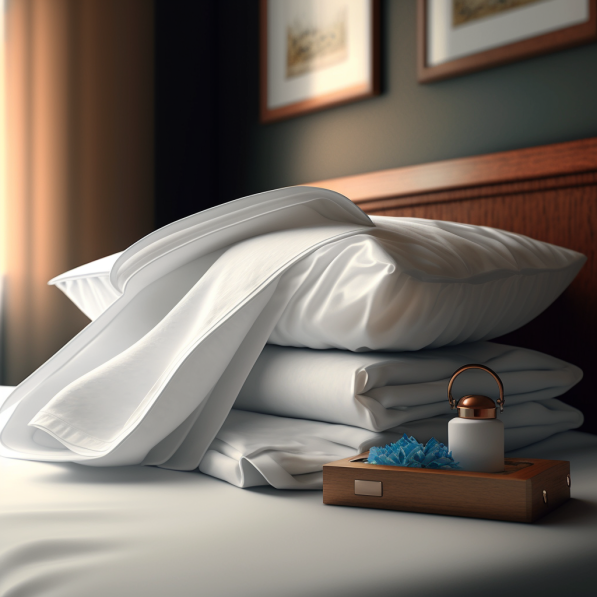
Most hospitals, unless they are private, have a tight budget and need to make their assets last as long as possible. Hospital linen is one area where costs can be cut without compromising care. If you are a hospital linen manager, here are some tips on how to make your sheets last longer.
Pre-wash your sheets before using them for the first time.
Whether you’re replacing old hospital sheets or purchasing new ones, it is important to pre-wash them before using them for the first time. Pre-washing your sheets helps remove any lingering dyes, oils, and other materials that may have been used in the manufacturing process. For hospital sheets, pre-washing is especially important as it helps remove any trace chemicals and contaminants that could harm patients or damage hospital equipment. Additionally, pre-washing will help your hospital sheets last longer as fabrics are more durable after a good pre-wash.
Follow the care instructions on the label when washing your sheets.
For hospital beds and other specialized hospital products with specific care instructions, always refer to the provided guidelines that are sewn into the product tag or included with the hospital bed instruction manual. It can also be beneficial to use a gentler laundry detergent than you would normally go for, as stronger detergents and bleaching agents can damage hospital sheets or physically erode their fabric. To avoid damaging hospital bed sheets, it's important to dry them at lower temperatures. High temps can cause fabrics to fray and labels to become unreadable. By adhering to these tips, your hospital sheets will last much longer.
Use a gentle detergent when washing your sheets.
When washing hospital sheets, using a gentle detergent is important in ensuring that they remain clean and comfortable over time. Detergents with strong fragrances and harsh chemicals can break down the fabric fibers of hospital-grade sheets, resulting in fading and reduced softness. You have several options to consider when choosing a detergent, such as an eco-friendly liquid detergent that is free of dyes and fragrances or a non-toxic or chlorine-free option with no phosphates or added bleaching agents. These detergent options will help maintain fabric strength and minimize wear while still keeping the sheets clean. With milder formulas available now more than ever, there is no need to sacrifice efficacy when choosing your laundry supplies – just make sure to choose a gentle detergent when washing your bedsheets for the best results.
Don't use fabric softener on your hospital sheets.
Hospital sheets are designed and woven to be hypoallergenic and resistant to bacteria, fungi, and other irritants. While it might seem like a good idea to use fabric softener on hospital sheets to make them softer, this can do more harm than good. Fabric softener contains petroleum-based emollients that can damage the fine fibers in the fabric. Furthermore, fabric softener leaves an oily residue on the bedding sheets that can build up over time, eventually leading to a decrease in the fabric's breathability and a deterioration of its hypoallergenic qualities. For these reasons, it is always best to avoid using fabric softeners when washing hospital sheets. Doing so will help extend the life of the fabric while also ensuring optimal cleanliness for the patients sleeping in them.
Iron your hospital sheets if they become wrinkled.
Hospital sheets, just like any other bedding material, can become wrinkled from being used and washed multiple times. Unfortunately, wrinkles are more than a cosmetic issue in a hospital: they can place additional stress on the fabric, causing it to wear out much quicker. To prevent this, it's important to iron hospital sheets when they become wrinkled. This is not only an easy task that requires minimal effort but also one that can help improve patient comfort levels and ensure the integrity of the fabric threading. When ironing hospital sheets, do not use starch - even if it promises to "help keep them wrinkle-free." While starch might seem like a good idea initially, it has been known to cause skin irritation and over time can reduce the lifespan of your sheets. So stick with just heat for keeping your hospital sheets looking their best!
If you're looking for a fresh, new set of sheets for your hospital, we offer a variety of hospital bedding options that will make your patients feel at home. Our sheets are of the highest quality and durability to ensure they can be used multiple times, especially in high-traffic areas such as hospitals.

























